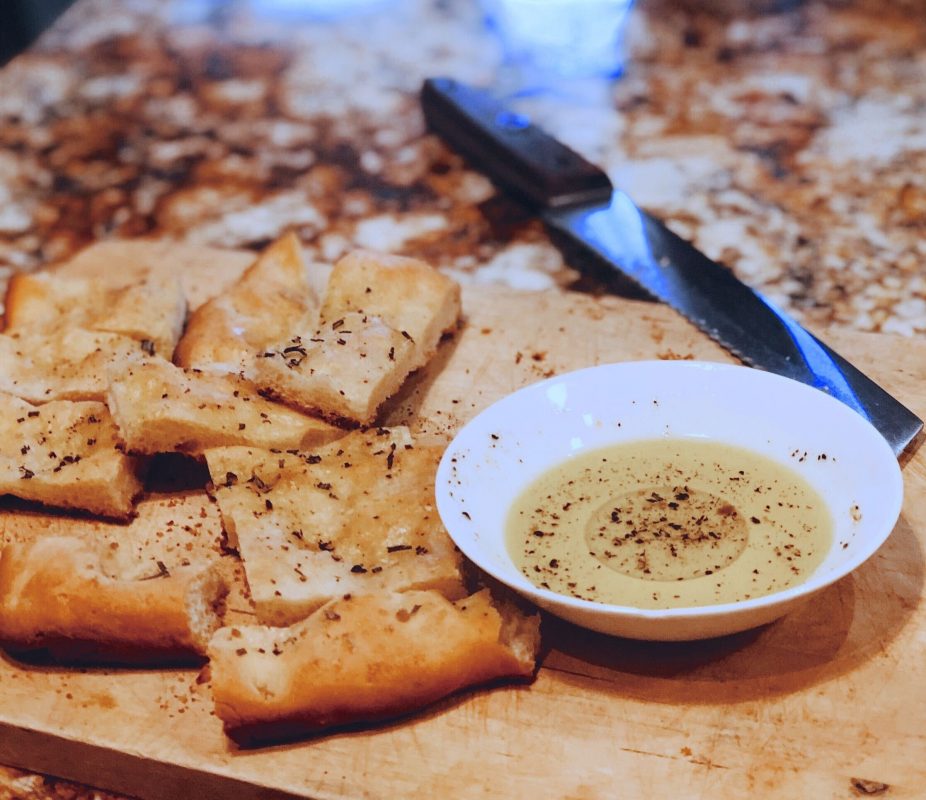
If you’ve been to the market lately, you’ve surely noticed that shortages are not limited to toilet paper and Purell.
As consumers continue to shelter at home during the pandemic, most area stores have also been wiped out of bread flour, sugar, and packets of dry yeast—sales of yeast grew 647 percent in the week ending March 21, compared to the same week in 2019, according to Nielsen data—and many Baltimoreans have turned to baking.
“I have never been a bread baker until now,” says Baltimore-based journalist Jennifer Mendelsohn. “I was always terrified of yeast,” she says, laughing. “I’m a competent baker, but I just had this mental block about yeast. It frightened me. It’s a living thing that needs coaxing and feeding.”
While new to bread baking, Mendelsohn says she has always enjoyed baking and cooking on snow days. When coronavirus struck, she says, “a lightbulb went off. I was like, ‘I’m going to make bread.’”
Of course, easier said than done. When she couldn’t find any yeast, a neighbor left a container of it on her doorstep. That yeast went into her first loaf, a crusty white bread that didn’t need kneading. She took great pride in the way it turned out.
“After making it, I felt like an alchemist,” Mendelsohn says. “I said on Twitter that the pride that I feel about successfully making bread is second only to having produced two small humans out of my body.”
But what is it about bread that home bakers find so appealing in times of crisis? For Mendelsohn, it’s about productivity.
“At a time when nothing is under our control, there’s something incredibly satisfying about doing something so elemental and creative from scratch.”
Others agree. Danny Mayhugh has been a budding baker for four years now, but with his work as a cameraman currently dried up, he has decided to turn his love of breadmaking into a bit of a temporary business model.
“At a time like this, it passes the time really well for me,” says Mayhugh in between an order for four dozen blueberry muffins and four loaves of bread (flavors include rustic wheat and white, as well as banana and zucchini bread). “So many things are out of our control right now, it’s nice to have something turn out right, especially for someone like me who doesn’t have a job right now.”
Another local baker making bread not only as an outlet for creativity, but also out of necessity, is dog trainer Rachael Bereson Lachow of Postively Obedient.
“I’ve always made birthday cakes, brownies, things like that,” she says, “but haven’t made bread for years. “We aren’t going to stores at all, so it seems like the only way to get good bread. My yeast expired two years ago, but it seems to be okay.”
Like Mayhugh, Dickeyville resident and MICA event planner Nelle Somerville has also been baking for years, but she has stepped up her game during the pandemic.
“I come from a foodie family,” says Somerville. “I grew up with a mom who made homemade peanut butter in a Cuisinart. My dad baked this sourdough when we were younger, and the smell was incredible. The starter lived in the fridge.”
Over a year ago, she turned to bread baking after La Cuchara baker Carrie Goltra shared her sourdough starter with Somerville. During the quarantine, Somerville has become something of the neighborhood baker.
“People have been giving me flour so I can bake them bread,” she says. “I walk outside and get a text that there’s three bags of flour at my front door.”
Baltimore research editor Christine Jackson has also been “bitten by the pandemic baking bug.” While some have taken to stress baking in these uncertain times, she sees the uptick as a way that people are finding comfort.
“When our days seem to be stretching longer than ever, baking bread feels purposeful and productive in a way that’s comforting instead of stressful,” Jackson says. “It’s not ‘I finally have time to do this chore, so I have to do it.’ It’s ‘I finally have time to do this right, so I’ll try it.’”
WYPR membership director Carolyn Jewell bakes for the simple reason that she likes to eat, but now that she’s home, she’s had more time to pursue her passion.
“For me, it’s just trying to literally feed that desire to stay well fed and just keep busy at the same time,” says Jewell. “I’ve been watching a lot of baking shows. And not being able to go to Bonjour Bakery to get what I normally get has led to necessity being the mother of invention. I made cranberry scones for the first time the other day.”
Jodi Miller, a senior executive assistant to the president at Johns Hopkins University, has always loved to bake, but has also gone into overdrive, partially out of survival mode, but also because it’s a family activity.
“Baking is something I enjoy and now I have more time to do it,” she says. “My son and I made eight chocolate chip banana breads the other day. I put them in my freezer.”
Jackson has even gone beyond baking, fermenting her own tepache and pickled cucumbers and carrots in jars. It’s all a way for her to keep busy while improving her recipes.
“Not one of them is perfect, but I had a great time making them all,” she says. “I’ve got plenty of time to experiment and improve. By the time we come out of this, I’m hoping they’ll be good enough to share.”
